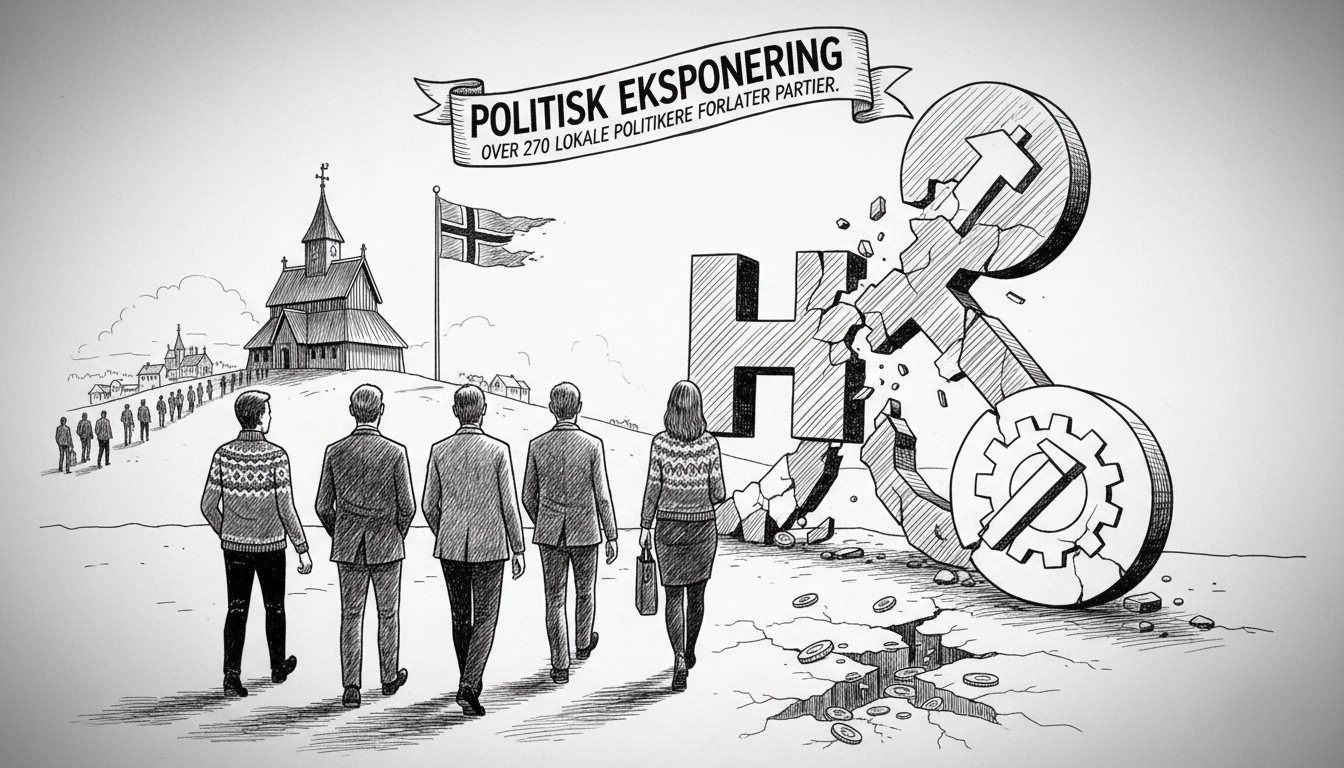More than 270 local politicians across Norway have left their political parties since the last municipal elections, according to a comprehensive nationwide survey. The findings reveal a significant erosion of party loyalty at the local government level that could reshape municipal politics across the country.
Arild Inge Svensli represents a growing trend among Norwegian local representatives. After decades with the Conservative Party, he recently switched allegiance to the Centre Party following an internal conflict over a leadership position. Svensli now attends Centre Party group meetings while serving as an independent in Molde's municipal council.
"I've concluded that the Centre Party locally matches my views best, particularly on rural policy matters," Svensli explained about his political transition.
The scale of departures has surprised political observers. A systematic review of all Norwegian municipalities shows 260 elected representatives have voluntarily left their parties since the last local elections. Another 11 faced expulsion or suspension from their political groups.
Political researcher Bjarte Folkestad from Volda University College expressed concern about the high numbers. "This could indicate that parties have lost some grip on both voters and their own representatives," he noted.
The Industrial and Business Party and the Conservative Party account for approximately half of all departures, with 65 politicians leaving each. Other parties show varying but substantial numbers of defections.
Researchers point to several key factors driving this political exodus. Local and regional policy disputes caused 91 departures, while personality conflicts and party culture issues prompted 75 politicians to leave. General local disagreements accounted for 23 exits, and national party dissatisfaction drove 31 politicians to abandon their affiliations.
Financial pressures on municipalities create additional strain. "Tight municipal economies force through unpopular decisions that generate considerable noise and conflicts," Folkestad observed about the challenging environment for local politicians.
The consequences extend beyond individual career changes. In several municipalities, governing majorities established after elections have disappeared due to party departures. This creates situations where voters elected one political configuration but received something different in practice.
John Magne Bjerga's experience illustrates how principle can override party loyalty. Elected as a Conservative representative in Froland municipality, he left the party over a budget disagreement. "They proposed a selection model that I believed the municipality couldn't afford," Bjerga stated. "It's wrong to spend money you don't have. I cannot vote for something I cannot stand behind personally."
After a brief period as an independent, Bjerga joined the Liberal Party, giving them representation in a municipality where they hadn't fielded candidates in the previous election.
The growing trend raises questions about voter confidence in the political system. When elected representatives change parties mid-term, it potentially undermines the mandate voters provided at election time. Yet researchers note that local politics involves both individuals and parties, and voters may appreciate politicians who stand by their convictions.
This political reshuffling occurs against the backdrop of Norway's unique local government structure. Municipal councils hold substantial authority over education, healthcare, urban planning, and economic development. The current wave of party departures could significantly impact how these services are delivered across Norwegian communities.
As Arild Inge Svensli adapts to his new political home, he remains uncertain about his complete ideological transformation. "I don't know yet if I've become a Centre Party member in my heart," he admitted. "I need to check that out. But I attend group meetings and feel very comfortable."
The situation continues to evolve as more local politicians reconsider their party affiliations, potentially reshaping local governance throughout Norway.

